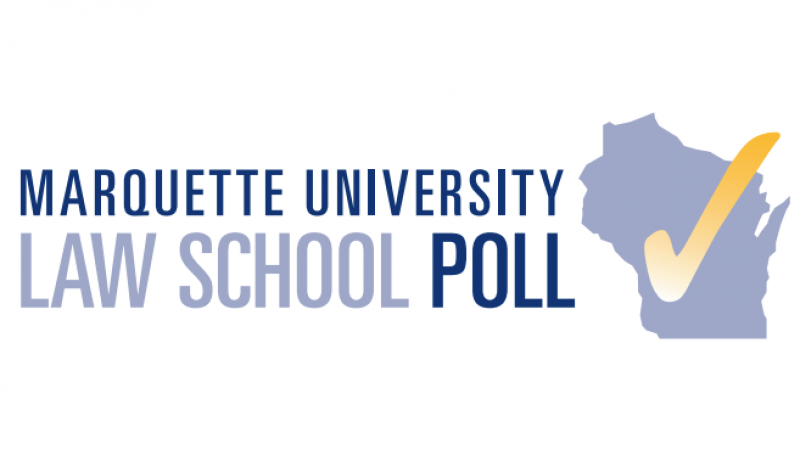Marquette University Law School pollster Charles Franklin has a challenge as Wisconsin prepares for another election cycle.
“How do you get people to talk to you that don’t want to talk to you?” Franklin said to WisPolitics.com, noting polling problems during the 2020 cycle.
The polling failures of 2016 forced the industry to do some introspection and revamping of methods to better account for the non-college educated voters who turned out for Donald Trump. But those tweaks still didn’t catch the surge in turnout among Trump supporters in 2020, leading to another round of questions about why polling failed once again to accurately gauge the electorate.
“If there were a glaring thing that we could’ve identified that was the source of the problem, we’d clearly fix that glaring shortcoming,” Franklin said. “The trouble is in our analysis internally and in the analysis of the polling done nationally by the pollsters association, we really don’t find a very clear smoking gun.”
>> WisPolitics is now on the State Affairs network. Get custom keyword notifications, bill tracking and all WisPolitics content. Get the app or access via desktop.
Franklin says he’s looking at tweaks to the Marquette University Law School poll’s methodology, not wholesale revisions. The first MU Law School Poll of Wisconsin voters in 2021 will be released Aug. 11.
“I do think it has to do with President Trump’s remarkable ability to turn out some voters that don’t turn out for other Republican candidates,” Franklin said.
Franklin pointed out the Marquette Law poll was actually more accurate in 2020 than 2016 when it came to the presidential race.
The final poll in 2016 had 46 percent of likely voters backing Hillary Clinton and 40 percent supporting Trump, while the Senate race was about even. Trump won 47.2-46.5, while U.S. Sen. Ron Johnson, R-Oshkosh, won his rematch with Dem Russ Feingold 50.2-46.8.
The last poll ahead of the 2020 presidential race had Joe Biden at 48 percent and Trump at 43. Biden ended up narrowly winning Wisconsin 49.5-48.8.
In both years, the poll underestimated Trump’s support. Franklin chalked that up to the then-president’s backers being unwilling to talk to pollsters, an issue that was also seen nationally.
In between, the poll nearly nailed the 2018 races.
The final poll of likely voters had the guv’s race a tie at 47 percent apiece. Dem Tony Evers went on to beat Scott Walker 49.5-48.4.
Meanwhile, it had U.S. Sen. Tammy Baldwin, D-Madison, up on then-GOP state Sen. Leah Vukmir 54-43. Baldwin won reelection 55.4-44.5.
Franklin said the recent polling record suggests Trump brings a unique dynamic. And it has him focused on several areas:
*ensuring each region of the state is accurately reflected in its share of the sample. Trump has done particularly well in western and northern Wisconsin. Franklin noted that even if the partisan balance of the sample is in line with historical trends, Trump’s support among Republicans was stronger outstate than with suburban GOP voters. One way to improve the sample is to try reaching more people in underrepresented regions during the polling process. Another is to weight the data to ensure it correctly reflects the state’s geographic balance.
*fine-tuning the wording of questions, including trying to press respondents more if they say they’re undecided to see if they lean one way or another.
*working on voter turnout models to add questions to gauge if respondents will truly cast ballots. The poll has largely relied on asking respondents how sure they are they’ll vote, as well as probing those who aren’t registered if they plan to do so. That effort includes adding questions about voter excitement.
One of the biggest challenges is addressing the drop-off in response rate, particularly among those believed to be Trump supporters. Some pollsters have tried to connect with hard-to-reach respondents by sending them text messages that invite them to fill out an online survey. Franklin said he tried that in 2020 to research if it was feasible for the Marquette Law poll. But he didn’t find it significantly improved the ability to connect with hard-to-reach voters; plus the profile of those who responded to the text invite didn’t match known demographics of the state as well as the telephone survey does. What’s more, those in rural areas who lack high-speed internet access also face a hurdle in completing surveys online.
Franklin said he may use online polling more a couple of election cycles down the road, but he believes live callers remain the best option in Wisconsin in the short term.
He also acknowledged there is a lot on the line in the 2022 cycle as pollsters look to improve upon their performance. Those struggles likely won’t help them reach those who were hesitant to participate in polling last year, especially as Trump ripped surveys showing him underperforming as efforts to suppress turnout among his base. Franklin said no report will persuade those hard-to-reach voters to start participating in polls again. Ultimately, it would require a better performance by pollsters.
“If we have another year like 2018, I’ll feel pretty good,” Franklin said. “If we have another year like 2016, I’ll feel a lot worse.”




